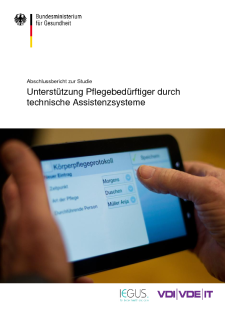
More than ever before, our world is shaped by megatrends, such as demographic change, global climate change, increasing urbanisation, as well as far-reaching, technological and social processes of transformation. Digitalisation is deeply changing our private and working lives and is interacting with technological and social innovations to create new possibilities for the world economy and society at large. Flexible production procedures, decentralised value-added processes and platform-based business models are transforming industries and placing high demands on the innovative and adaptive capacities of companies, corporations and individuals.
At the same time, demographic change is leading to an aging, shrinking population in many industrialised countries and in particular to regional and national migratory movements. Meanwhile, the flight of refugees and international migration are altering the composition of national populations and their social cohesion. These processes are already having profound implications for rural areas, the provision of specialised personnel, public infrastructure, the healthcare sector as well as for existing and developing markets. All of these transformations equally involve opportunities and risks for enterprises and national economies in terms of their innovative capacities, productivity and competitiveness. And only those who understand the future can adequately prepare for it.
The Demography, Clusters and Foresight Department has set itself the task of identifying societal and technological trends at an early stage, of understanding their possible consequences and of arranging them into existing contexts. Decision makers in the fields of science, business and public policy should be put in the position of being able to develop possible courses of action and actively shape the processes of change.
The specialists of the Demography, Clusters and Foresight Departmentt have at their disposal a comprehensive repertoire of futurology and technology research methods, from conducting surveys and moderating multi-stakeholder processes in strategy development, to foresight tools, such as visual roadmapping, to IT-supported, qualitative and quantitative information and data analysis as well as horizon scanning.


